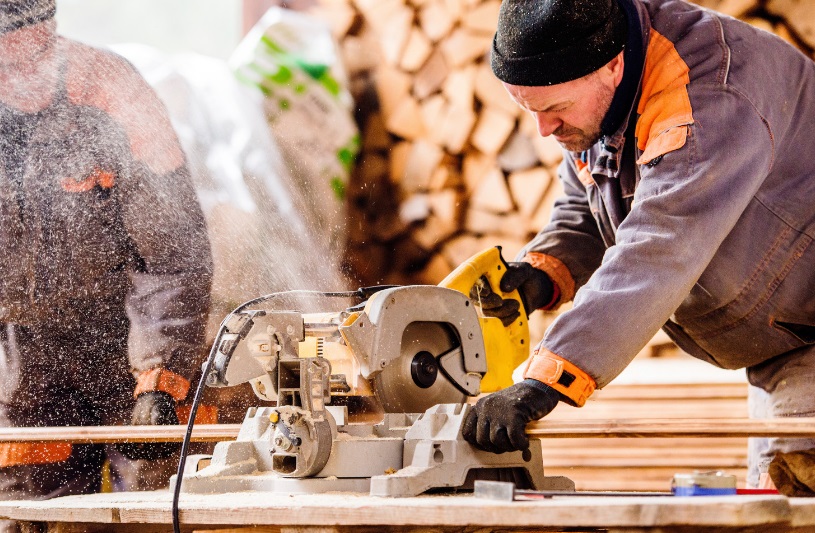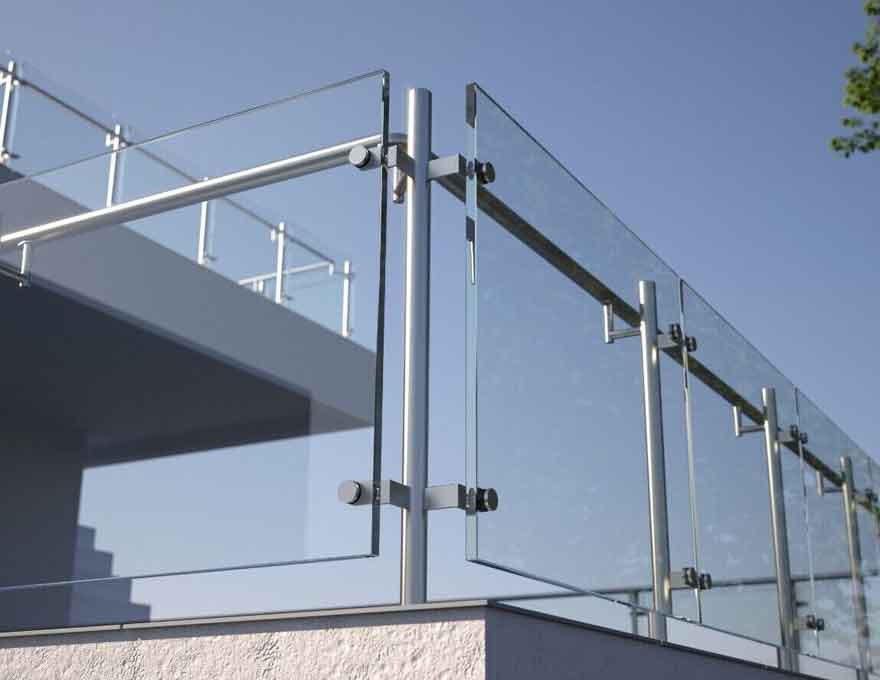Joiners & Glass Balustrades Stirling
Stirling, a historic city nestled in central Scotland, is celebrated for its rich cultural heritage and stunning architecture. Its buildings, ranging from medieval castles to modern homes, owe much of their charm and durability to the skill of joiners Callander and carpenters. These craftsmen play an essential role in shaping the aesthetic and structural elements of properties across Stirling. Their work encompasses a broad spectrum, from bespoke furniture and cabinetry to large-scale structural timberwork, ensuring that homes and businesses reflect both functionality and beauty.
The Role of Joiners and Carpenters
Joiners Cambusbarron and carpentry, though often used interchangeably, involve distinct skills and tasks. Joiners typically focus on crafting items in workshops, creating products such as doors, windows, staircases, and bespoke furniture. Carpenters, on the other hand, work on-site to install these pieces, as well as constructing frameworks, roofing, and structural elements.
Together, joiners and carpenters in Stirling collaborate to bring architectural visions to life. They are adept at working with a variety of materials, including traditional Scottish hardwoods like oak and ash, as well as modern engineered woods and sustainable timber alternatives. Their work combines traditional techniques with cutting-edge tools and technology, resulting in projects that are both timeless and contemporary.

Residential Joinery and Carpentry
Best Joiners Stirling, joinery and carpentry services are indispensable. Whether renovating historic properties or building new homes, skilled craftsmen ensure that every detail is executed to perfection. Popular services include:
- Custom Doors and Windows: Joiners craft bespoke doors and sash windows, designed to match the character of Stirling’s period homes. These pieces are not only visually stunning but also improve energy efficiency and security.
- Staircases: A central feature of many homes, staircases are often crafted with intricate detailing. Joiners produce both traditional designs for older properties and sleek, modern options for contemporary spaces.
- Cabinetry and Furniture: From fitted wardrobes to custom-built shelving units, joiners provide tailored storage solutions that maximize space and enhance the aesthetic appeal of interiors.
Joiners Callander
Joiners and carpenters in Callander play a vital role in maintaining and enhancing the town’s homes, businesses, and historical buildings. With a mix of traditional craftsmanship and modern techniques, these skilled tradespeople contribute to the town’s architectural beauty and functionality.
Bespoke Woodwork and Furniture
One of the key services offered by joiners in Callander is bespoke woodwork. Many residents and business owners seek custom-built furniture, including fitted wardrobes, bookcases, and kitchen units. Skilled joiners craft these pieces to match the unique styles of traditional Scottish homes while incorporating modern functionality.
Doors, Windows, and Flooring
Joiners are also responsible for crafting and fitting high-quality doors and windows. In a town with many historic buildings, traditional sash and case windows often require restoration or replacement, a task that demands precision and knowledge of period-appropriate materials. Additionally, hardwood and laminate flooring installations are popular, adding durability and elegance to homes and businesses.
Structural and Roofing Work
Carpenters and joiners in Callander undertake essential structural work, including timber framing for new builds, home extensions, and roof construction. Their expertise ensures that buildings withstand Scotland’s varied weather conditions while maintaining aesthetic integrity.
Renovations and Historical Restoration
Given Callander’s historic significance, many joiners specialize in restoration projects, carefully repairing timber features in older buildings. Whether restoring beams in a centuries-old cottage or refurbishing a traditional shopfront, their craftsmanship helps preserve the town’s heritage.
From modern home improvements to heritage conservation, joiners Callander and carpenters provide essential services that combine tradition, skill, and innovation to enhance the local community’s built environment.
Commercial Joinery and Carpentry
In addition to residential projects, Stirling’s joiners and carpenters contribute to the city’s commercial infrastructure. Shops, offices, and public buildings benefit from their expertise in creating functional and visually appealing spaces. Common services include:
- Shop Fitting: Custom counters, shelving, and displays are designed to optimize retail spaces, providing both practicality and a professional appearance.
- Office Interiors: Carpenters construct ergonomic workstations, partition walls, and conference tables, tailored to the needs of modern businesses.
- Heritage Restoration: Stirling’s historic landmarks often require sensitive restoration to preserve their architectural integrity. Joiners and carpenters excel in replicating original woodwork and repairing structural elements in a way that honors the past.
Sustainable Practices in Stirling’s Joinery and Carpentry
With growing awareness of environmental issues, sustainability has become a priority for many joiners and carpenters in Stirling. They frequently source timber from responsibly managed forests and incorporate eco-friendly materials into their projects. Additionally, advanced manufacturing techniques reduce waste and improve efficiency, ensuring a minimal environmental footprint.
Recycling and repurposing old timber are also common practices. For instance, reclaimed wood from demolished buildings is often used to create unique furniture pieces or flooring, adding character and history to new projects while reducing waste.
Challenges and Innovations
The joinery and carpentry industry in Stirling faces a variety of challenges, including maintaining traditional craftsmanship in an era of mass production. However, local craftsmen have embraced innovation to overcome these hurdles. Computer-aided design (CAD) and precision cutting tools enable them to achieve unparalleled accuracy and efficiency, while 3D modeling allows clients to visualize projects before they are built.
Additionally, the resurgence of interest in handmade and bespoke items has bolstered the demand for skilled joiners and carpenters. Many customers now seek unique, high-quality woodwork that reflects their personal style and values, further highlighting the importance of these trades.
Choosing the Right Professional in Stirling
When selecting a joiner or carpenter in Stirling, it is essential to consider factors such as experience, reputation, and specialization. Many craftsmen in the area offer portfolios showcasing their previous work, which can provide valuable insight into their capabilities. It is also advisable to seek recommendations from friends or online reviews to ensure a reliable and skilled professional.
Composite Decking, Timber Decking, and Glass Balustrade Fitters in Stirling
Homeowners in Stirling seeking to enhance their outdoor spaces often consider composite decking, timber decking, and glass balustrades for both functionality and style. These features not only elevate the aesthetic appeal of gardens and terraces but also improve usability and safety. Glass balustrades Stirling
Composite decking offers a low-maintenance, durable solution that resists weathering and fading. Made from recycled materials, it’s eco-friendly and ideal for busy households seeking long-lasting performance without frequent upkeep. This decking option provides a contemporary look, perfect for modern homes in Stirling.
Timber decking, on the other hand, adds a natural, rustic charm to outdoor areas. It blends seamlessly with the surrounding environment and can be treated to withstand the unpredictable Scottish weather. Skilled fitters in the Stirling area can customize timber decking to suit various property styles and sizes.

Glass balustrades complement decking projects, providing sleek safety solutions without obstructing views. They are particularly popular for elevated decking areas, offering a minimalist and sophisticated design.
Local fitters in Stirling are equipped with the expertise to deliver professional installations tailored to individual needs, ensuring quality craftsmanship. Investing in these features can transform any outdoor space into a functional and visually stunning area for relaxation and entertainment.



